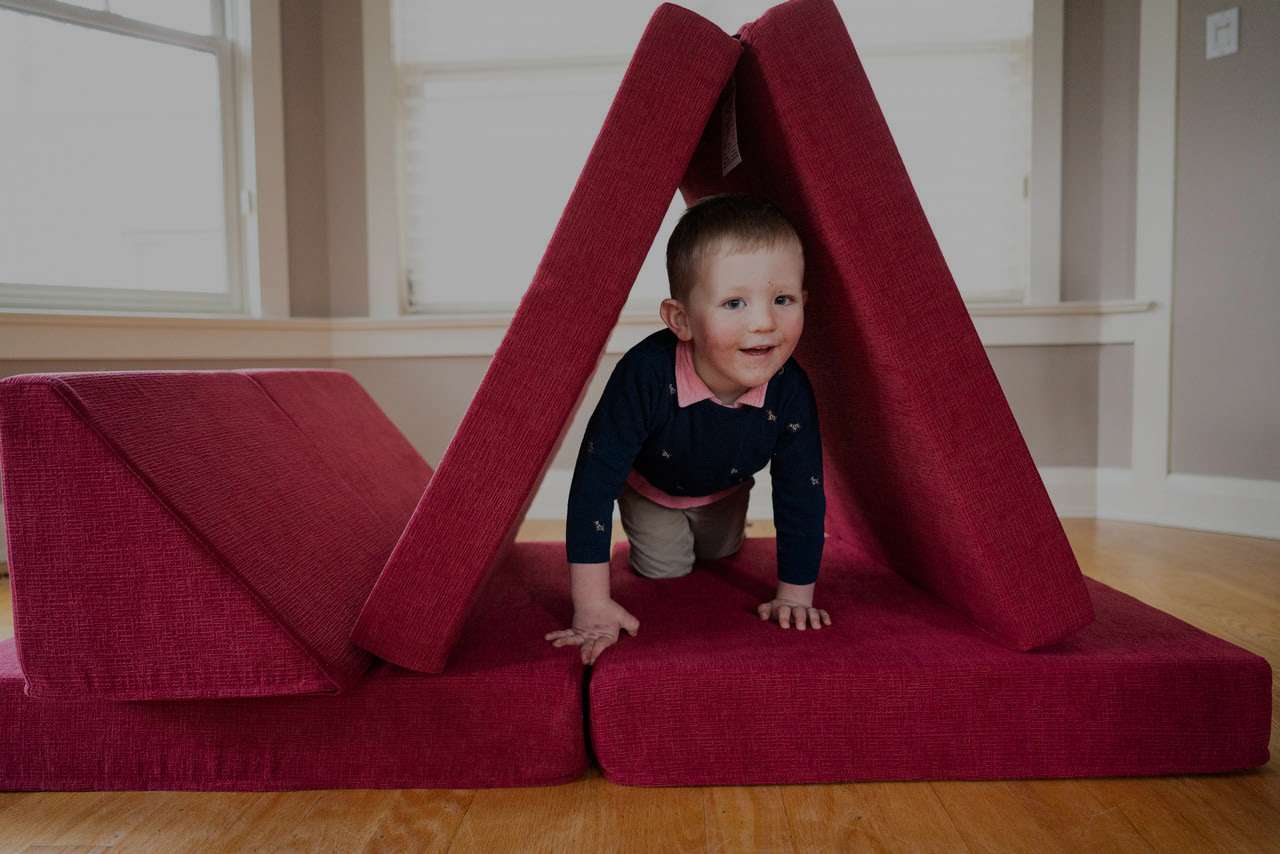by Rachel Franklin, M.d.
My twins, Jack and Emma, start kindergarten this fall. Like every other parent of a new student, I recently stood anxiously in line for threee hours in the chalk-filled hallways of our local public school in an effort to get them on the waiting list for the all-day kindergarten class. (If you ever wondered that doctors do when they’re not available in their offices, here’s the answer! And you were probably thinking we skip out to play golf.).
Like every parent of multiples, I wondered how difficult would be for me to persuade the powers-that-be that my children would be best served if they were together in the same classroom. I felt more confident knowing I had a secret weapon in my portfolio to strengthen my hand for negotiations that day-just in case. I want to share my secret with you.
First, some background: My twins have been at a Montessori school for the last three years-the first two-and-a-half together, and this past six months apart (a trial period we agreed to after two years of arguing with their teachers). Although they have flourished in both environments, they have repeatedly mentioned how much they miss each other when they’re separated.
In a new school, with new friends to make and a new environment to which they must acclimate, my husband and I believe a particular blessing of twinship is for them to have each other-being physically close together-until we parents agree they can be apart for their own reasons.
In writing this, I wish to argue not that all twins should be together all the time, but that parents who disagree with the decisions of a school system regarding their children need only know the path to take with the school to get what they want. I feel fortunate to live in Oklahoma-one of only two states having legal standards for schools that require deference to parental choice in the placement of multiple-birth children.
Jack and Emma will be in the same class next year, and no fight erupted in the effort to place them there. For those of you who live elsewhere, your experience can be discouragingly different-you may be told that your multiples will be separated because it is supposedly “in the twins’ best interest.” And you may feel there is little you can do to change the minds of the teachers and administrators-indeed, some parents of multiples have been told to consider home schooling if they wish to try to control their children’s education
Many of us agree legislation would be helpful, and I have personally endorsed Kathy Dolan’s efforts in this regard (to see a copy of the letter I wrote Kathy, visit her website at http://www.twinslaw.com/Welcome_to_Twinslaw.com_Where_the_twin_bond_is_celebrated_and_protected_under_law!.html
However, in the absence of legislative help, all is not lost. While you may not have control, there is always room for negotiation. And if you level the playing field by knowing what the educators know, you may well succeed.
Educators, like doctors, are expected to follow certain guidelines when taking care of your loved ones. These standards or guidelines are not intended to be applied blindly if there is evidence that following them would be harmful to a specific person in a specific situation. Guidelines exist in an effort to unify the ways in which we do our jobs. Guidelines for educators are created by a federal government task force (the Educational Research and Improvement Council-ERIC) and funded by the Office of Educational Research and Improvement of the U.S. Department of Education, covering topics ranging from how to create fair tests to how to acclimate home-schooled children into higher education.
These guidelines are published on the Internet (at www.eric.ed.gov) and are available to educators across the country.
Just as all doctors are expected to know what the Journal of the American Medical Association is, all teachers and administrators should be familiar with the ERIC Digest and know that it exists and contains guidelines for assisting them in providing an appropriate educational environment for all of our children.
Many educators seem to have forgotten the ERIC Digests—or never knew they existed—because these men and women are often arguing a position to you that is in direct opposition to their own guidelines, which say—wait for the shocker here—that parents often know what is best for their children, and that placement of twins together should be allowed unless certain circumstances exist!
If you have children nearing school age, you would benefit by going to the site above and printing out these guidelines for yourself, putting them in your “Important Information” folder along with your twins’ immunization records. Be prepared to “share” them with your local school principal when enrolling your children in school.
This is especially important if you believe your district will be less than eager to adopt your assertions about your children’s needs to be in the same classroom. You will then be prepared to argue from a position of increased strength by asking the educators to agree to follow their own guidelines when teaching your children.
In brief, the guideline says that parents and teachers should ask themselves a few questions when considering the appropriate placement of multiples, namely:
• Are the twins, by the age of five, able to make and sustain friendships independently of one another? If so, they can be placed together if the parents wish. If not, separation should be considered on an “experimental” basis to allow this to begin.
• Do classmates or teachers constantly compare the twins, leaving one to feel negatively toward school? If so, separation could be considered. ?(In my opinion, a frank discussion with a teacher who is making comparisons is warranted to eliminate his or her unhelpful behavior).
• Are the twins consistently disruptive when they are together (and have attempts to change their behavior failed?) If so, separation may be important to preserve the rights of other children to learn successfully.
• Does a female twin “over-mother” her male sibling? If so, separation may help the boy develop independent behaviors and improve his learning.
• Does a female twin “over-mother” her male sibling? If so, separation may help the boy develop independent behaviors and improve his learning.
• How will separation affect twins who are used to leaning on each other for academic and social support, especially in preschool and early elementary education? A balance must be found between twins being overly dependent upon each other and twins being separated before they are able to cope adequately.
• Is there a social or health concern that would compound the stress of separation on the twins? For instance, if one twin has disabilities and leans on the other one, or if the parents are separating or divorcing, placement together may be in the best interests of the children.
• Finally, if the twins are school-aged, what do they want? The guidelines recognize that children have a right to their opinions and that those should be taken into account along with all other available information when the decision is made.
• And most interestingly, ERIC recognizes the importance of gaining the agreement of the parents:
“Placement decisions should also take into account the views of the parents…If parents disagree on the best course of action, teachers may want to listen carefully to each, make suggestions for them to consider, invite them to observe their children in the classroom, and suggest a short-term experiment of separating or keeping the twins together. During that time, the twins can be closely observed and evaluated by teachers and parents. In this way, the school personnel and the parents can address the issue as a team focused on the long-term best interests of the children.”
So don’t sell yourself short when it comes to directing the education of your children—your opinion matters most, and you have always known it. Remember that if your children turn out poorly, nothing else you have ever done matters.
The people who have the greatest interest in your children’s final outcome are you and your children, not the people who went to school to learn to teach them. They may love children and be dedicated professionals when it comes to educating children, but ultimately, those who teach will only be with your children for about nine months or less, after which they move on to another group of kids.
Advocate for your twins just as you did while you were pregnant with them—ask the tough questions, demand answers from the professionals, and be willing to participate with them to improve your children’s educational experience. Ask to be part of a team with your kids’ educators, neither insisting that they be “the boss” of the educational process nor agreeing to be relegated to the sidelines.
And keep the ERIC guidelines in mind—you never know when you might need them again to help you find answers when talking to the other members of the team. Best wishes for a successful school year—see you on the playground!
Bio/Byline: Dr. Rachel Franklin, a board-certified family medicine physician in Oklahoma City, is the mother of 4-year-old twins and the author of Expecting Twins, Triplets and More: A Doctor’s Guide to a Healthy and Happy Multiple Pregnancy (St. Martin’s Griffin 2005), available at www.TwinsMagazine.com (Twins Bookshelf, Pregnancy and Expecting Books). She posts advice on the TWINS™ Magazine Message Board forums “Pregnant with Multiples?” and “Postpartum.” Visit her Web site, www.AskDrRachel.com







There is 1 comment
My twins definitely thrived in the same classroom and I wouldn’t have ever dreamed of separating them.